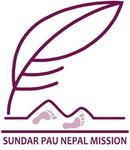Dhokpya
Dhokpyas(Tokpegolas) live in Tokpegola situated at the top of the Mewa River to the west of Walung in Taplejung District. Their major occupation is trade. They ply their trade between Dhankuta, Dharan and Chainpur of Sankhuwasabha in Nepal and Sar in Tibet. Their language, religion, culture and dress styles are in essence similar to Tibet region of China as are those of the Lhomi(Shingsaba) in the near west, Walungs in the east and the neighboring Thudams.
ImageIn the northwest part of Taplejung district there is a place called Topkegola wherefrom the Mewakhola River originates. This place, Topkegola, is situated to the west of Olangchung Gola. The inhabitants of this village are called Topkegola, too. They are called Dhokpya in the local dialect. The term Dhokpyai in their language denotes the shelter of a cowherd. Topke is a derivativation of Dhokpe, which can be traced back to Dhokpya and Dhokpyai.
Since Tokpegola is situated at an altitude of about 5,000 mt from sea level, the Dhokyas live there for only four to five months and move down towards the southern low lands from October onwards and return to Topkegola from the lowlying areas around the month of May. Their settlements are, therefore, scattered over the VDCs of Papung, Sanba, Lungthung, Nalbu, Thukimma, Liwang and Khokling, which are in the south from Topkegola. The census of 2001 has not reported the actual number of Topkegola people. Topkegola Samaj Sewa Samiti (Topkegola Committee for Social Service) has estimated their number at 2,000-3,000.
Both practices of marriage—by arrangement and by agreement between the boy and the girl in question—are prevalent. While handing the daughter over to the bridegroom after having completed other rituals, the father of the other nearest relative of the girl's side puts a khada (a kind of muffler) around the bridegroom's neck and asks to take oath by tying three knots for three commitments, ie that the girl is being transferred to the bridegroom's family, that the bridegroom cannot later say that he does not like the girl, that he assures good treatment throughout their life. Even in the case of the wife's death the bridegroom is allowed to marry another woman only after duly undoing the oath. The funeral rituals followed by these people are similar to those of Sherpas. They celebrate festivals and ceremonies like Thukpa Chesi, Dyudne, Gyailapso, Chhewa, etc except Lhosar (Thapa and Sherpa, BS2058). They sing songs, including Thalu, Syabu, Phundasye, Lusya, etc and Syabu is their common dance.
Dhokpyas are dependent particularly on trade and animal husbandry. Southerners engage in agriculture in a limited quantity. Dhokpya women are good at weaving carpets. Women are famous for trade and business. Women of this community, in particular, are considered dominant. Since their income from business is notable they do not claim share of inherited property.
